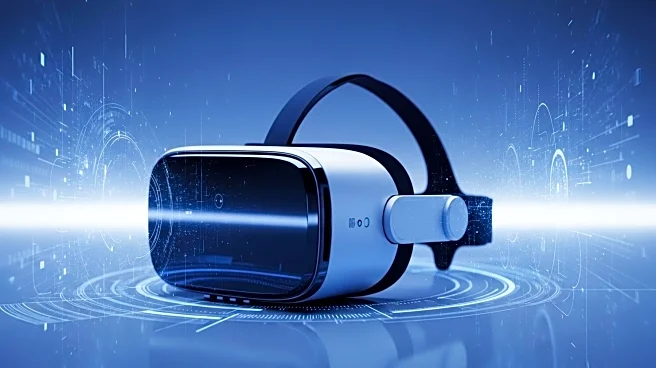What's Happening?
Recent research highlights a phenomenon where users feel 'stuck in virtual reality' after removing their headsets. This sensation, known as proprioceptive disconnect, occurs when the brain's model of the body's position in space is altered by VR experiences. The study, conducted by researchers at the University of Chicago, found that VR can cause lingering effects on users' proprioception and memory. For instance, participants in a study misremembered the location of objects in a room after experiencing a virtual replica with altered object positions. This disconnect can pose safety risks, especially in training scenarios where accurate spatial awareness is crucial.
Why It's Important?
The implications of this research are significant for industries utilizing VR for training, such as emergency services and military operations. If VR environments do not accurately replicate real-world scenarios, it could lead to errors in critical situations. The findings underscore the need for careful design and testing of VR training programs to ensure they do not inadvertently compromise users' spatial awareness. As VR technology becomes more widespread, understanding and mitigating these side effects will be crucial to its safe and effective use.
What's Next?
Further research is needed to explore the full extent of VR-induced proprioceptive disconnect and its potential risks. Developers and researchers are encouraged to investigate other perceptual manipulations in VR, such as changes in walking speed or body structure, to better understand their impact. As VR technology continues to evolve, ensuring user safety and minimizing side effects will be a priority for the industry.
Beyond the Headlines
The study also touches on broader psychological phenomena, such as depersonalization-derealization disorder, which can be exacerbated by VR experiences. This raises ethical considerations about the use of VR in sensitive contexts and the responsibility of developers to address potential mental health impacts.










